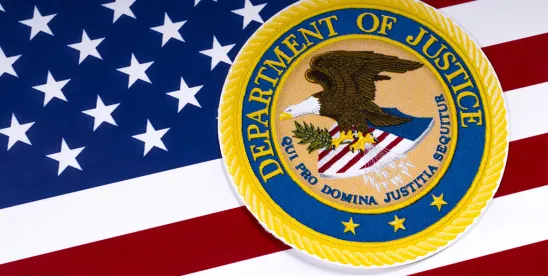The Department of Justice’s (“DOJ”) recent settlement with a global venue services company serves as a reminder for parties negotiating or entering into transactions that are reportable under the Hart-Scott-Rodino Act (“HSR”) to take steps to avoid gun-jumping, even when the parties do not expect the government to challenge the deal.
On August 5, 2024, the DOJ filed a complaint against Legends Hospitality Parent Holdings, LLC (“Legends”) in the district court for the Southern District of New York, along with a proposed consent judgment. The consent judgment, if entered by the court, will resolve the DOJ’s allegations of gun-jumping that took place prior to the expiration of the pre-merger notification waiting period associated with Legends’ agreement to acquire ASM Global, Inc. (“ASM”) for $2.325 billion. Legends has agreed to significant remedies, including a civil penalty of $3.5 million.
The Acquisition and HSR Filing
According to the complaint, Legends is a global venue services company, focusing on food and beverage, feasibility studies, project development, and sales. ASM is also a venue services company, but focuses on venue management services, such as event booking, operations, sanitation, and security. In early 2023, Legends and ASM began negotiating a potential transaction. The negotiations resulted in an agreement in November 2023, pursuant to which Legends agreed to acquire ASM for $2.325 billion. The parties filed HSR notices in the days following signing. Although the DOJ sought additional information with a “Second Request” issued in or around January 2024, the DOJ ultimately allowed the waiting period to expire on May 29, 2024, without challenging the deal.
The Alleged Gun-Jumping
In May 2023, while the parties were negotiating their deal, Legends won the right to manage an arena in California upon the expiration of ASM’s management lease on July 31, 2024. Under the contract, Legends would provide services including booking, operations, human resources, engineering, sanitation, production, security, event staffing, and other services to the arena. The DOJ alleged that, due to the planned acquisition, Legends decided to arrange for ASM to provide those services on its behalf. After filing HSR, but before the expiration of the waiting period, Legends and ASM signed various agreements, pursuant to which ASM agreed to provide certain services for the arena instead of Legends.
Although the management contract described above seems to be the DOJ’s focus, the complaint also alleges other conduct that may have informed the DOJ’s decision to bring an action. For example, while Legends and ASM were in negotiations for the acquisition, Legends and ASM reportedly discussed competitive bidding strategies. With respect to one potential contract, a senior Legends executive emailed the CEO, noting: “I assume we would rather have ASM chase this?” The CEO informed another executive: “We will find out if ASM is bidding as don’t want to both be bidding.” In addition, Legends and ASM allegedly cooperated to submit a joint bid for another contract after they had each submitted separate bids. To formulate the joint bid, the parties allegedly exchanged competitively sensitive information.
The Consequences
In addition to agreeing to pay a civil penalty of $3.5 million, Legends agreed to the following restraints, which will remain in place for at least seven years:
- Legends must appoint and pay for an antitrust compliance officer, whose nomination is subject to the DOJ’s approval. The compliance officer will manage the implementation of the consent judgment, provide antitrust training to certain employees and the Board, provide certain annual reports signed by the Chief Executive Officer and the General Counsel to the DOJ, and, among other things, notify the DOJ of any allegations of potential violations of the consent order. Legends must also permit the DOJ to have access to its files and employees.
- Unless it (a) secures advice from antitrust counsel; (b) consults with the compliance officer; and (c) obtains advanced written permission from Legends’ Chief Executive Officer or General Counsel, Legends is restricted in its ability to engage in certain conduct in connection with an agreement or collaboration with any competitor.
The proposed consent judgment does not constitute an admission of liability on Legends’ behalf.
The Bottom Line
The case against Legends serves as a reminder that, even when the government does not challenge an HSR-reportable deal1 before the expiration of the HSR waiting period, the parties’ pre- and post-signing business dealings can be scrutinized and can result in significant penalties. Therefore, even when parties are confident that their transaction does not substantially lessen competition or tend to create a monopoly, they should be mindful of the gun-jumping rules, particularly if they are competitors or potential competitors.2
United States v. Legends Hospitality Parent Holdings, LLC, No. 1:24-cv-5927 (S.D.N.Y. Aug. 5, 2024).
1 The government could also bring gun-jumping enforcement actions in connection with deals that are not reportable under the HSR Act by framing the parties’ conduct as a violation of the Sherman Act.
2 Even though gun-jumping enforcement actions are more commonly brought in connection with deals between competitors, parties that are not competitors can also be charged with gun-jumping. See, e.g., United States v. Input/Output, Inc. et ano., No. 1:99-cv-912 (D.D.C. Apr. 12, 1999).




 />i
/>i
